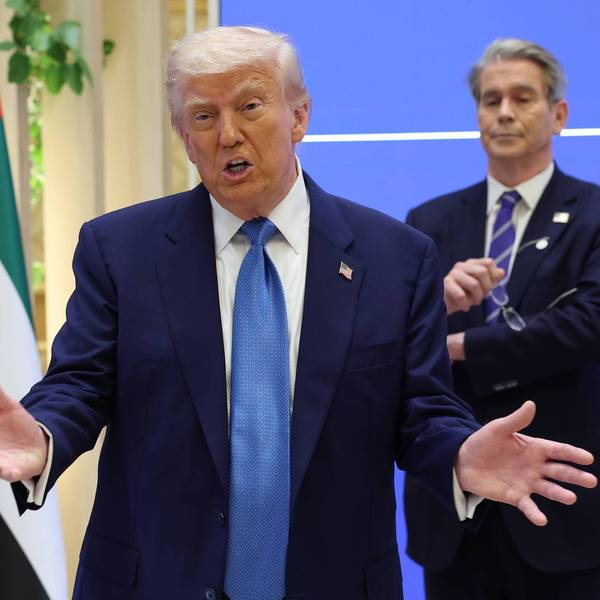Harvard University pushed back forcefully Friday after President Donald Trump declared in a social media post that "we are going to be taking away Harvard Tax Exempt Status," adding that is "what they deserve."
Trump's comment came just hours after Democratic senators sent a letter demanding a probe into whether the administration is acting illegally by trying to compel the U.S. Internal Revenue Service to yank the university's tax exemption.
Trump's post did not specify whether the IRS, the entity that has the power to remove an organization's tax-exempt status, is opting to remove Harvard's designation. Multiple outlets noted they got no immediate response from the IRS when they asked the agency for comment.
"There is no legal basis to rescind Harvard's tax-exempt status," a university spokesperson said in a statement, according to Politico. "Such an unprecedented action would endanger our ability to carry out our educational mission."
It is illegal for the president, vice president, or other top officials to request, indirectly or directly, that the IRS audit a particular taxpayer.
Senate Minority Leader Chuck Schumer (D-N.Y.) and multiple other Democratic senators on Friday asked the Acting Treasury Inspector General for Tax Administration (TIGTA) to probe whether the IRS has received illegal pressure from the administration when it comes to Harvard, and to provide information about whether the agency is looking into other entities at the direction of the president or other top officials.
"It is both illegal and unconstitutional for the IRS to take direction from the president to target schools, hospitals, churches, or any other tax-exempt entities as retribution for using their free speech rights," the senators wrote in a letter dated Friday to the Acting TIGTA Heather Hill.
"It is further unconscionable that the IRS would become a weapon of the Trump administration to extort its perceived enemies, but the actions of the president and his operatives have now made this fear a reality. We request that you review whether the president or his allies have taken any step to direct or pressure the IRS to take politically-motivated actions regarding the tax-exempt status of the president's political targets," they continued.
Loss of tax-exempt status, something that would only typically occur after an audit process that allows the university opportunity to defend itself and appeal, would be extremely significant for the university. Tax-exempt status means the school does not pay federal income tax on charitable contributions to the school and other income. It also means that donations to the school are tax-exempt for those who make them.
Trump mused publicly on April 16 that Harvard should lose its tax-exempt status, after the university's president said the institution would not comply with a list of policy demands from the president, that included, according to the Harvard Crimson, derecognizing pro-Palestine student groups and auditing academic programs for viewpoint diversity. The pushback from Harvard prompted the administration to freeze over $2 billion in federal funding for the school.
That same week, it was reported that the IRS was making plans to revoke Harvard's tax-exempt status.
In response to Trump's bullying tactics, Harvard sued the administration, calling the freeze on funding unlawful and asking the court to restore it.
The tangling between Harvard and the Trump administration is part of a broader wave of scrutiny by the White House on higher education.




